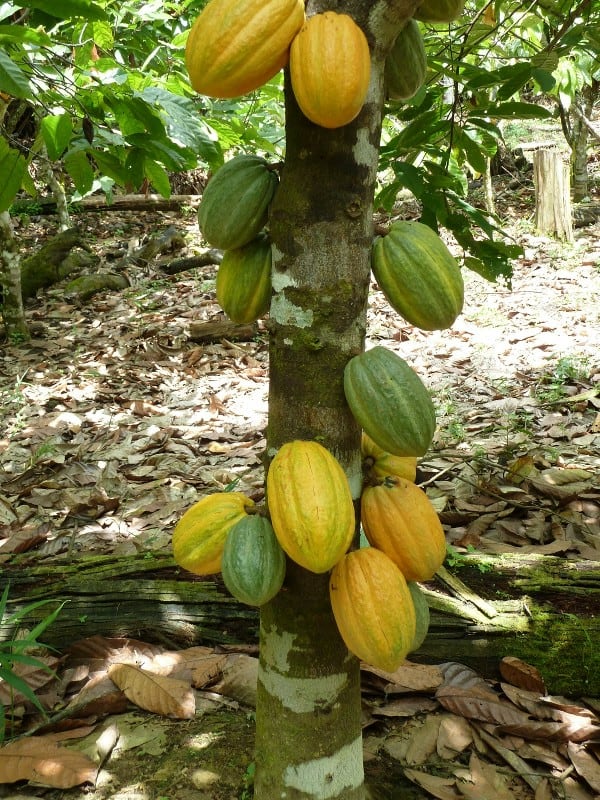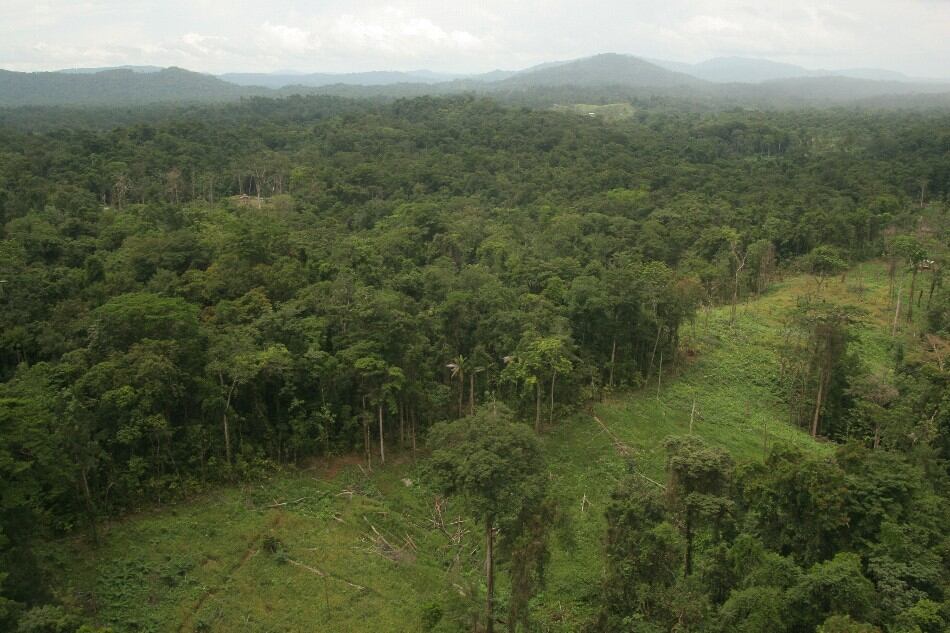The Rainforest Alliance believes cocoa and chocolate companies should go further to ensure farmers and their families can thrive and invest in the future of their farms, proposing a Living Income Fund of €1,000,000 to reach approximately 1,000 cocoa farmers over the next two years.
‘This fund will help us facilitate cash transfers to these farmers (amounting to approximately €500 per year), which we estimate will improve household incomes by eight to 11 percent. Farmers will access funds through a mobile payment service to improve security. Because all beneficiaries will be Rainforest Alliance Certified, we can ensure a level of performance on key management, farming, social, and environmental practices,’ it said in a recent statement.
We are working to combat climate change, protect forests and biodiversity, promote human rights and improve livelihoods, which are really all very interconnected -- Kerry Daroci, Cocoa Sector Lead at the Rainforest Alliance
The Rainforest Alliance also states that numerous studies have shown indigenous and rural communities to be the best forest guardians when given secured rights to land and resources and supported with technical expertise, incentives, and market access. ‘This has been demonstrated by lower deforestation rates and healthier landscapes, for example. By drawing from successful community-led landscape management projects in Ghana, Peru, Cameroon, Guatemala, Mexico and Indonesia, we can showcase inspiring examples to replicate,’ it said.
“We celebrated our 35th anniversary recently, and we are working to combat climate change, protect forests and biodiversity, promote human rights and improve livelihoods, which are really all very interconnected,” says Daroci. “And we do this by bringing together farmers, forest communities, companies and consumers. We really need to change how the world produces, sources, and consumes agricultural commodities – not just cocoa.”
Her role at the Rainforest Alliance is the development and implementation of a cross-organization cocoa-sector strategy developed with various experts within the organisation.
Tipping point
Emmanuelle Bérenger, Sustainable Forest Management Lead, is one of the experts working on the strategy and she informs this publication: “The state of the world’s tropical forests could not be more urgent. The Amazon is rapidly approaching a tipping point where it will no longer be able to generate its own rainfall, which would increase its susceptibility to fire and cause most of the Amazon to disappear. Deforestation is also surging in other parts of the world, including the Congo Basin, the world’s second-largest rainforest, and a globally significant biome we can't afford to lose.
“Not only are tropical forests of critical importance for carbon storage and biodiversity, they also provide livelihoods for millions of smallholder farmers, forest communities, and Indigenous communities around the world.

“It's not too late to turn the tide, but progress can only be achieved collaboratively, and when all actors take responsibility. Alongside stopping deforestation and forest degradation in the tropics, we can begin to heal the damage done by giving value to standing forests, empowering local and indigenous communities, restoring degraded forests, building resilience, and nurturing biodiversity.”
Daroci says the Rainforest Alliance Certification is key to the organisation, to its mission, and “to the work that we do with everyone in the alliance, but especially with producers.”
She explains there are three pillars to certification: social, economic, and environmental. “What the certification stands for, in terms of looking at deforestation, is it’s really a tool for companies to use as a mechanism for due diligence. There is a risk assessment that's associated with the certification scheme, so Rainforest Alliance-certified farms go through this risk assessment that looks at where all of its farms within the certification are located. We provide geolocation information and run what we call a deforestation risk assessment so that helps the farm certificates to know where there are high deforestation risks within their farming units.”
She says the deforestation situation, not only in West Africa - and not only in the cocoa sector - is critical. “When we think about the climate crisis and agricultural production, the producers are really vulnerable to short-term issues like drought, pests, and disease that really threaten their harvests, but also longer-term issues like land. And often that leads to moving into forested areas, so in order to really break the cycle of poverty, which is a very, very difficult and complex thing to do, we really need to think about what does that mean in terms of looking at the climate crisis on its own? Then also thinking about how we can address poverty in a more holistic way.”
Daroci explains the Rainforest Alliance's Living Income Fund was started for companies and manufacturers to provide more financial benefit to the farmers they were buying from. “It’s more of a direct payment method that has worked really well.”
Consumer pressure
She also emphasises the consumer’s voice is really strong and drives the market; and they should look for the Rainforest Alliance green frog certification seal on the wrapper. “I think there is a growing population of consumers that are more aware and go beyond just looking at what's on the shelf … but really pushing companies to go beyond what's required in terms of regulation or the bare minimum in terms of sustainability to making more impact within their supply chains.”
Daroci wraps up the interview with her thoughts back to World Rainforest Day. “Individuals working in the cocoa sector should also think about the role their own companies can play. It will be critical for companies to work beyond their supply chains, as part of an alliance, to create the necessary impact for people and the planet over the coming months and years.”

